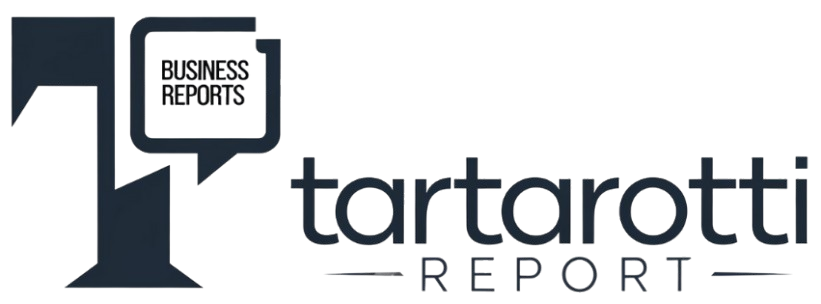Introduction:
In the current scenario of financial globalization, the search for efficient asset protection and tax optimization strategies has led many investors and entrepreneurs to consider offshore jurisdictions. Among these, the British Virgin Islands (BVI) have emerged as a particularly attractive option for setting up holding companies.
Recent figures show that more than 400,000 companies are registered in the BVI, with a significant influx of foreign capital. This impressive number is no coincidence: the BVI offers a unique combination of political stability, a robust legal framework based on English common law, and a favorable tax environment.
In this article, we will explore in depth the benefits and opportunities of establishing a holding company in the BVI, with a particular focus on asset protection, succession planning and global investment strategies. We will address the advantages for both non-US tax residents and residents, highlighting how this structure can be a crucial component in a successful international financial strategy.
Part 1: Ready to Roll 🚀 – Basic Strategies and Practical Actions
Part 1, “Ready to Roll”, offers practical actions and immediate advice for entrepreneurs who need quick and effective guidance.

1. Fundamentals of Asset Protection through BVI Holdings
Importance of International Asset Protection
In an increasingly litigious and economically volatile world, asset protection transcends borders. A BVI holding company offers an additional layer of security, distancing your personal assets from commercial risks and potential litigation.
Recommended Initial Methods
1. Basic Structuring: Start by establishing a Limited Company in the BVI. This type of entity offers flexibility and anonymity, crucial characteristics for asset protection.
2. Asset Segregation: Use the holding company to hold shares in other companies or high-value assets, creating a clear separation between personal and corporate ownership.
3. Appointment of Directors: Consider appointing professional directors to increase privacy and efficient management of the holding company.
2. Effective Succession Planning
Tips for Structuring a Robust Succession Plan
1. Use of Bearer Shares: Although the BVI has restricted the use of bearer shares, it is still possible to use them under certain conditions, facilitating the transfer of ownership.
2. Implementing International Wills: Create a specific will for the assets held by the holding company in the BVI, ensuring a smooth transition in the event of death.
3. Structuring Trusts: Consider establishing a trust in the BVI in conjunction with the holding company for more robust and flexible succession planning.
Key Considerations Aligned with International Standards
– Be aware of the tax implications in your country of residence when structuring your succession planning.
– Keep up to date with changes in BVI legislation and international agreements that may affect the structure of your holding company.
3. Global Investment Strategies
How to Develop an Effective Investment Strategy
1. Geographic Diversification: Use the holding company to invest in different global markets, minimizing country-specific risks.
2. Access to International Markets: The BVI offers an ideal platform for accessing investment markets that may be restricted in other jurisdictions.
3. Structuring Joint Ventures: Use the holding company to establish international partnerships efficiently and with adequate legal protection.
The Importance of Cultural Adaptation and Consistency
– Maintain a consistent investment strategy, but be prepared to adapt to changes in global markets.
– Consider cultural differences when investing in different markets, using the flexibility of the BVI structure to adapt to different business environments.
Part 2: Deep Dive 🤿 – Technical Depth in Advanced Strategies
Part 2, “Deep Dive”, provides in-depth analysis for those wishing to delve into the technical and complex aspects of international finance.

4. Detailed Analysis of Tax Benefits
In-depth Exploration of Technical Aspects
1. Corporate Tax Exemption: The BVI does not impose taxes on profits, dividends, capital gains or interest for offshore companies.
2. Double Taxation Treaties: Although the BVI does not have many double taxation treaties, the absence of local taxes can be advantageous in complex international structures.
3. Reinvestment Strategies: The absence of taxes makes it possible to reinvest profits more efficiently, boosting equity growth.
Case Studies
Tax Optimization for a Brazilian Entrepreneur
A Brazilian businessman used a BVI holding company to structure international investments. Through this structure, he was able to:
– Reduce the tax burden on income from foreign investments.
– Facilitate reinvestments in new global ventures.
– Simplify the international succession planning process.
Result: Estimated tax savings of 15% per year and greater flexibility in global wealth management.
5. Implementing Corporate Governance Structures
Recommendations for Efficient Management Tools
1. Compliance Systems: Implement robust compliance tools to ensure compliance with international regulations, such as FATCA and CRS.
2. Document Management Platforms: Use secure corporate document storage and management systems to maintain accurate and accessible records.
3. International Accounting Software: Adopt accounting systems that can handle multiple currencies and international accounting standards.
Tips for Maximizing the Use of These Resources
– Establish clear procedures for corporate decision-making, documenting all important resolutions.
– Carry out regular audits to ensure that the holding company structure is operating in accordance with international best practices.
6. Advanced Asset Protection Strategies
Techniques for Identifying and Managing Risks
1. Use of Specialized Subsidiaries: Create separate subsidiaries within the holding company structure to isolate specific risks from different investments or operations.
2. Implementation of Force Majeure Clauses: Include robust force majeure clauses in contracts to protect against unforeseeable events that could affect the holding company’s assets.
3. Financial Hedge Strategies: Use sophisticated financial instruments to protect against exchange rate and market risks.
Action Plans for Adverse Situations
– Develop a detailed contingency plan for economic or political crisis scenarios in jurisdictions where the holding company has significant investments.
– Establish clear protocols for the rapid transfer of assets between different structures in the event of legal or regulatory threats.
7. Innovations in Investment Structures
Discussion on Emerging Trends
1.Asset Tokenization: Explore the potential of tokenizing assets through the BVI holding company, taking advantage of the growing acceptance of digital assets.
2. Hybrid Structures: Consider combining the BVI holding company with other structures, such as investment funds in the Cayman Islands or trusts in Nevis, to maximize tax and protection benefits.
3. ESG Investments: Use the flexibility of the BVI to structure investments in line with ESG (Environmental, Social, and Governance) criteria, meeting the growing demand for sustainable investments.
Tips for Maintaining Flexibility
– Keep abreast of the latest innovations in offshore structures and be prepared to adapt your holding as necessary.
– Cultivate relationships with experts in different jurisdictions to stay ahead of global trends in estate planning and investments.
Conclusion
Establishing a holding company in the British Virgin Islands offers an impressive range of benefits for global investors and entrepreneurs. From robust asset protection and efficient succession planning to global investment opportunities and tax optimization, a well-planned BVI structure can be a crucial component of a successful international financial strategy.
However, it is crucial to remember that the world of offshore finance is constantly evolving. International regulations such as FATCA and CRS continue to shape the landscape, requiring an increasingly sophisticated and compliant approach. The key to success lies in staying informed, adaptable and always in line with international best practices.
For those looking to protect and grow their wealth on a global scale, a BVI holding company, when structured and managed properly, can offer a powerful combination of protection, flexibility and efficiency. As with any complex financial strategy, guidance from experts in international law, accounting and estate planning is essential to successfully navigate this challenging but potentially rewarding terrain.
When considering the establishment of a BVI holding company, remember: the goal is not just tax optimization, but the creation of a robust and flexible structure that can withstand the complexities of the ever-changing global financial landscape. With proper planning and careful execution, a BVI holding company can be a powerful tool to protect, preserve and grow your assets for future generations.
FAQs
1. Q: What are the typical costs associated with maintaining a holding company in the BVI?
A: Annual costs generally include registration fees (around $450 USD), registered agent costs (approximately $1000-$2000 USD), and possible expenses for professional directors and accounting services. The total annual investment can vary from $3000 to $10000 USD, depending on the complexity of the structure.
2. Q: How do recent changes in international tax transparency affect holding companies in the BVI?
A: The BVI has implemented the Common Reporting Standard (CRS) and complies with FATCA, requiring greater transparency. This means that financial information can be shared with tax authorities in other countries. It is crucial to keep accurate records and comply with all reporting obligations in your country of residence.
3. Q: What is the process for transferring existing assets to a holding company in the BVI?
A: The process usually involves:
1. Establishment of the holding company in the BVI
2. Valuation of the assets to be transferred
3. Preparation of appropriate transfer documents
4. Possible restructuring of ownership in other jurisdictions
5. Careful consideration of the tax implications of the transfer in your country of residence
It is highly recommended to work with an experienced accountant to ensure that the transfer is done correctly and in compliance with all applicable laws.
4. Q: How can a BVI holding company specifically benefit US tax residents?
A: For US tax residents, the benefits are more limited due to strict US tax laws, such as GILTI (Global Intangible Low-Taxed Income). However, a holding company in the BVI can still offer:
– Protection of assets against litigation
– Enhanced privacy (although limited due to US reporting requirements)
– Flexibility in international investments
– Potential for tax deferral in certain cases
It is crucial to consult a US tax expert before establishing any offshore structure.
5. Q: What are the potential risks of having a holding company in the BVI and how do you mitigate them?
A: The main risks include:
– Negative perception of offshore structures
– Changes in international laws and regulations
– Increasing compliance costs
– Potential for errors in management and reporting
To mitigate these risks:
– Keep meticulous records and be transparent with the relevant tax authorities
– Work with reputable and experienced professionals
– Keep up to date with regulatory changes
– Implement strong corporate governance practices
– Consider diversifying your structures across multiple jurisdictions
Remember, although BVIs offer many benefits, it is crucial to approach offshore structuring carefully, transparently and in full compliance with all applicable laws. Always consult legal and tax experts before making significant decisions about international ownership structures.

Member of the IMA (Institute of Management Accountants) – USA
Member of the AICPA (American Institute of CPAs) – USA
Member of AAII (American Association of Individual Investors) – USA
Member of AAA (American Accounting Association) – USA
Member of the FMA (Financial Management Association) – USA
These associations not only attest to Kleyton’s commitment to professional excellence, but also ensure that his knowledge is always at the forefront of international financial and accounting practices.
With a robust academic background, including a Bachelor’s degree in Accounting and MBAs in International Finance and Accounting, as well as in International Business, Kleyton offers a unique and comprehensive perspective on the global business landscape.
Through the Tartarotti Report, Kleyton invites visionary entrepreneurs and executives to connect, explore opportunities for collaboration and, together, successfully navigate the complex world of international corporate finance.







